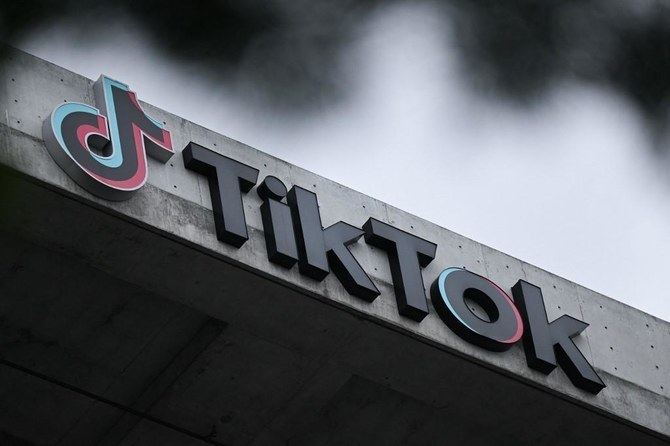LONDON: Britain’s parliament will block TikTok on all devices on its network following a similar ban on government devices, becoming the latest Western institution to bar the Chinese-owned video app over security concerns.
“Following the government’s decision to ban TikTok from government devices, the commissions of both the House of Commons and Lords have decided that TikTok will be blocked from all parliamentary devices and the wider parliamentary network,” a parliament spokesperson said.
Britain last week banned the Chinese-owned video app on government phones.
“Cyber security is a top priority for parliament,” the spokesperson added.
The United States, Canada, Belgium and the European Commission have already banned the app from official devices.
TikTok has come under increasing scrutiny due to fears that user data from the app owned by Beijing-based company ByteDance could end up in the hands of the Chinese government, undermining Western security interests.
The British parliament’s ban was announced as TikTok’s chief executive
faced questions
from US lawmakers who are convinced the app should be barred for being a potential national security threat to the United States.
British parliament blocks TikTok on all parliamentary devices
https://arab.news/2fub8
British parliament blocks TikTok on all parliamentary devices

- Britain last week banned the Chinese-owned video app on government phones
- The United States, Canada, Belgium and the European Commission have already banned the app from official devices
WhatsApp says Russia ‘attempted to fully block’ app

- Moscow has been trying to nudge Russians to use a more tightly controlled domestic online service
SAN FRANCISCO, United States: WhatsApp said Wednesday that Russia “attempted to fully block” the messaging app in the country to push users to a competing state-controlled service, potentially affecting 100 million people.
Moscow has been trying to nudge Russians to use a more tightly controlled domestic online service.
It has threatened a host of Internet platforms with forced slowdowns or outright bans if they do not comply with Russian laws, including those requiring data on Russian users to be stored inside the country.
“Today the Russian government attempted to fully block WhatsApp in an effort to drive people to a state-owned surveillance app,” WhatsApp posted on X.
“Trying to isolate over 100 million users from private and secure communication is a backwards step and can only lead to less safety for people in Russia,” WhatsApp added.
“We continue to do everything we can to keep users connected.”
Critics and rights campaigners say the Russian restrictions are a transparent attempt by the Kremlin to ramp up control and surveillance over Internet use in Russia, amid a sweeping crackdown on dissent during the Ukraine offensive.
That latest developments came after Russia’s Internet watchdog said Tuesday it would slap “phased restrictions” on the Telegram messaging platform, which it said had not complied with the laws.














